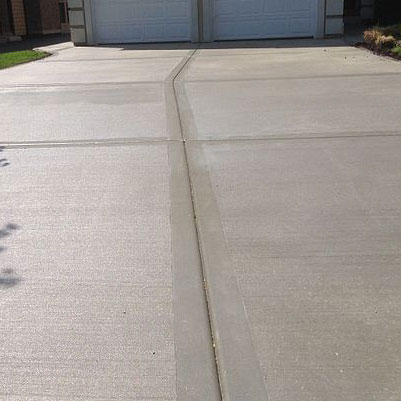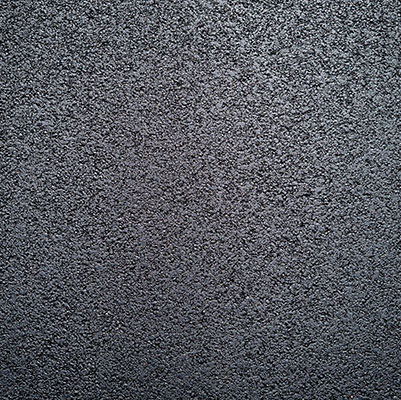When it comes to driveway surfaces, it usually comes down to the big two: concrete and asphalt. This tale as old as modern pavement has been debated over and over again — and we’re here to help guide your decision. Whether you’re in the process of renovating or building a new home, you’re more than likely looking at these two surfaces for your driveway. So which one is better?
Well, the answer to that question isn’t necessarily black and white (or in this case, black and gray). Sure, both concrete and asphalt will function as a driveway — there’s no getting around that. That being said, there are some aspects of these two materials that will set them apart from one another. These differences can guide your driveway decision-making process.
Before we dive into what exactly these differences are, let’s look at a quick overview of what might affect your choice.
- Climate
- Maintenance
- Installation time
- Appearance
There are certainly some other considerations, like cost, that may affect your options. But these four are typically your roadmap for choosing the ideal driveway solution. While we wish that there was a one size fits all solution or answer to your questions, there really isn’t. Both concrete and asphalt present their own unique set of benefits and drawbacks that could influence your decision. So, without further ado, let’s explore the ups and downs of concrete and asphalt.
Concrete
We’ve all seen concrete. It’s basically the soil of the urban landscape. It’s everywhere, but do you actually know what it’s made of?
The more you know. That being said, you’re probably still wondering how well concrete holds up for your driveway and why you might want to go with this option instead of asphalt. Well, let’s dive into some upsides and downsides of this incredibly popular material.
Upsides of Concrete
- One of the biggest upsides of concrete is how long it lasts (up to 40 years if properly maintained). If you’re planning on staying in your home for the long haul, this may be your ideal solution.
- Concrete doesn’t soften, which makes it ideal for areas that can get extremely hot. So, if you live in a warmer climate this might be the right fit.
- You have a bit more wiggle room with concrete when it comes to style. There are different colors to choose from which means that you can add some value and appeal to your home with a beautiful concrete driveway.
Downsides of Concrete
- Unfortunately, concrete is a bit more difficult to maintain. Concrete resurfacing can be tricky which means repairs often mean removal before new concrete can be installed. It also stains fairly easily and unwanted colors from leaks may leave a lasting impression.
- Another potential downside of concrete is that it limits the types of de-icing substances you can use on your driveway. Salt that is used to melt ice can be extremely damaging to concrete and can lead to cracking, crumbling and pitting.
- The final one on the list of negatives is that concrete can be more expensive than asphalt. Not only is this true for installation but also detail and finishes as well. That being said, this may be an investment if you are looking to add some curb appeal to your home.
Asphalt
This material is most commonly associated with roads, mostly due to how affordable it is to produce. Similarly to concrete, asphalt is comprised of aggregates (crushed rocks, gravel, sand, etc.), binder, and filler.
The most common binder used with asphalt is called bitumen. Asphalt is typically comprised of separate layers that work together in order to form a flexible pavement.
So, what makes asphalt a top contender for your driveway? Well, not only is it relatively low maintenance, but it’s also a bit more economical than other pavement materials. However, just like with concrete there are certainly some pros and cons to asphalt that you might want to consider before choosing.
Pros of Asphalt
- If you’re looking for an easy to maintain driveway, asphalt might be your best bet. It’s easy to resurface and far less likely to crack. Any cracks that do form can be easily taken care of with hot rubber crack refiller.
- Asphalt also holds up a bit better in colder climates. The dark color absorbs more heat and promotes ice melt. You can also use salt to melt ice on asphalt without having to worry about damaging your driveway.
- Installation time is also an upside of asphalt. Within a few days (3-4) you’ll be able to drive on it. Within a week you can even park on it.
Cons of Asphalt
- Asphalt doesn’t last as long as concrete. You’re looking at a lifespan of about 20-30 years — which you can extend with the right care and maintenance.
- While asphalt is relatively easy to maintain, you will have to seal cracks whenever they appear to prevent further damage. Also, if you want to get the most out of your asphalt driveway, you’ll want to seal coat the surface every five years or so.
- The final downside of asphalt is that it might not be as pleasing to look at compared to concrete. It simply doesn’t have the idealized appeal that alternative surfaces such as concrete possess.
So, Which Is Best For You?
The answer to that question really comes down to personal preference. We did our best to give you a fair assessment of the two so that you know exactly what’s in store. Both asphalt and concrete have their own set of positives and negatives, some of which may pertain to your specific location or circumstance.
Here at Richfield Blacktop, we believe in working with our customers to ensure that they are getting exactly what they want and need. If you’re looking for great service, incredible quality, and the very best results for your concrete or asphalt driveway, contact us today.






